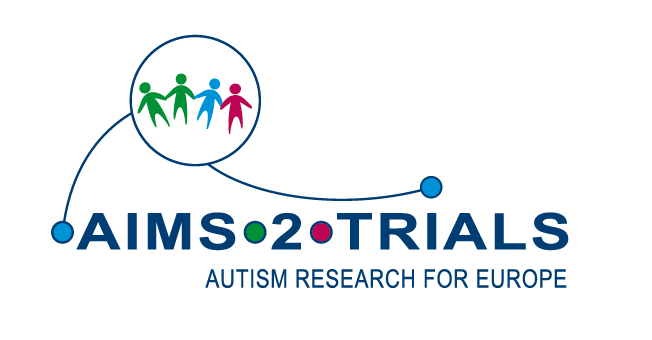A new medicine for social difficulties

Researchers will test whether a medicine called arbaclofen can improve social difficulties in children and adolescents with autism. If successful, it could become the first medicine to help autistic people with social interactions.
Many autistic people find it challenging to engage with others, or have little interest in socialising, which can make them vulnerable to isolation and bullying. A fundamental aspect of social behaviour is communication, which is a key challenge in autism, as reported by a group of autistic people and their caregivers in the United States in 2017. Communication was also reported to be a top priority for research by autistic people, their relatives and clinicians, in a UK survey in 2016. The current study on arbaclofen aligns with this priority.
Recent research suggests that aspects of autism such as social behaviours may be caused by a chemical imbalance that affects the activity of neurons in the brain. Key to this activity are the connections between one neuron and the next. Some connections stimulate, or excite, neurons while others inhibit their activity. The main chemical involved in this inhibition is called GABA (gamma-aminobutyric acid) and its levels are thought to be reduced in some autistic people, compared to thsoe without autism. GABA plays a role in many of the brain’s processes, including social behaviour. Arbaclofen acts on the GABA system and may help to balance inhibitory and excitory signals in the brain. This could improve some of the social difficulties seen in autism.
In a study published in 2017, arbaclofen showed promise in improving social behaviours within a sub-group of autistic people who were younger than 18 years old and who had good verbal skills. The current study will expand on this, testing arbaclofen in around 130 children and adolescents with autism, aged between 5 and 17 years old, and who have good verbal skills. Researchers will observe and score participants’ social behaviours, such as whether they initiate conversations, make eye contact, respond to social approaches, or plan activities with others.
If arbaclofen is shown to be effective, the researchers will aim to identify the characteristics of those who benefit from it most. These characteristics – or biomarkers – could be used in the future to predict who may benefit from the treatment. To identify biomarkers, the researchers will link an individual’s response to the medicine with data on their genetics and electrical activity across the brain, as measured by a technique called electroencephalography (EEG), which involves placing painless sensors on the head, which record but do not emit electricity.
This study will explore which dose of arbaclofen may work best, if these doses are safe and whether there are any side effects. The data from this study will be combined with that from a parallel study using the same methods to test arbaclofen in a group of 90 people in Canada. Together, the studies will include 220 people. If Arbaclofen is shown to be effective and safe, it will need to undergo further tests before it could, ultimately, become available for routine use.
Of course, not everybody wants medical treatments. This research may help to create options for those who want support. There are many ways in which the broader work of AIMS-2-TRIALS could inform and support the development of non-medical treatment options.
Details about the design of this clinical trial can be found in a 2021 paper, published in the journal ‘Frontiers in Psychiatry’:
Parellada, Mara et al. “A Phase II Randomized, Double-Blind, Placebo-Controlled Study of the Efficacy, Safety, and Tolerability of Arbaclofen Administered for the Treatment of Social Function in Children and Adolescents With Autism Spectrum Disorders: Study Protocol for AIMS-2-TRIALS-CT1.” Frontiers in psychiatry vol. 12 701729. 24 Aug. 2021, doi:10.3389/fpsyt.2021.701729
Parent testimonials
“I believe the reason why we are widely happy and proud that our child participated in the study is that we had very clear expectations (…). According to our understanding, this treatment would mean a mild improvement, a small help for the rest of therapies and activities, that aimed to improve his life and his sense of belonging/fitting better with others…Furthermore, if the trial was favourable, we would have contributed, even in a small percentage, to helping future kids and adolescents with ASD and their families.”
“I had a feeling of security, I was given all the information I needed (…) [my daughter] was clinically monitored at all times in a thoroughly supervised trial, because clinical trials guarantee a very strict vigilance of the patients…..Overall, I think it is very important to have more information on possible treatments that aim to improve [the symptoms in] ASD, the research is scarce and therefore we need clinical trials with potentially effective medications….It is essential to collaborate with science to develop research, in order to help the rest of the population. It is a matter of solidarity.”
Leaders of arbaclofen trial
Lead organisation: Hospital General Universitario Gregorio Marañón, part of Servicio Madrileño de Salud (SERMAS)
Leads: Celso Arango and Paul Wang
Principle Investigators: Mara Parellada (main PI), Richard Delorme, Jeremy Parr, Marc Woodbury-Smith, Mallika Punukollu, Tony Charman, Rosa Calvo, Andre Strydom, Ricardo Canal-Bedia and Manuel A. Franco-Martín
Research Centres: Hospital General Universitario Gregorio Marañón (SERMAS, Madrid), Robert Debré Hospital (Paris), University of Newcastle (UK), University of Glasgow (UK), King’s College London (UK), and Hospital Clínic (Barcelona, Spain), University of Salamanca (Spain), Zamora Healthcare Campus (Spain).
Collaborators
The trial of arbaclofen will be performed in collaboration with a network of researchers in Canada. This network is called POND, for the Province of Ontario Neurodevelopmental Disorders Network and is funded by the Ontario Brain Institute. The trial in Canada is also funded by Brain Canada and the Azrieli foundation, which represents a partnership between private and federal or provincial funders. POND aims to identify the differences in biology that play a role in neurodevelopmental conditions, and to translate this knowledge into novel treatments to improve healthcare and long-term outcomes for children with neurodevelopmental conditions. This aligns with the goals of AIMS-2-TRIALS. The European and Canadian investigators have worked together closely to make their studies as similar as possible so that the data can be pooled into a single analysis. All data sharing will take place in accordance with informed consent from participants and in line with national and EU regulations.







